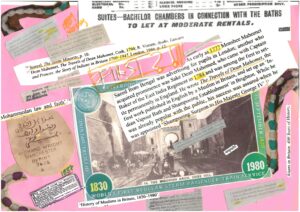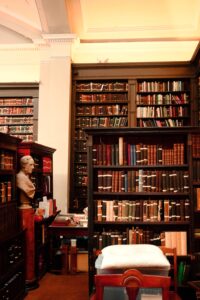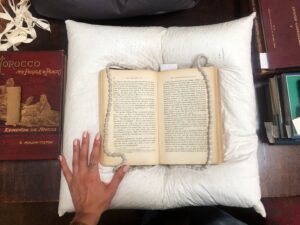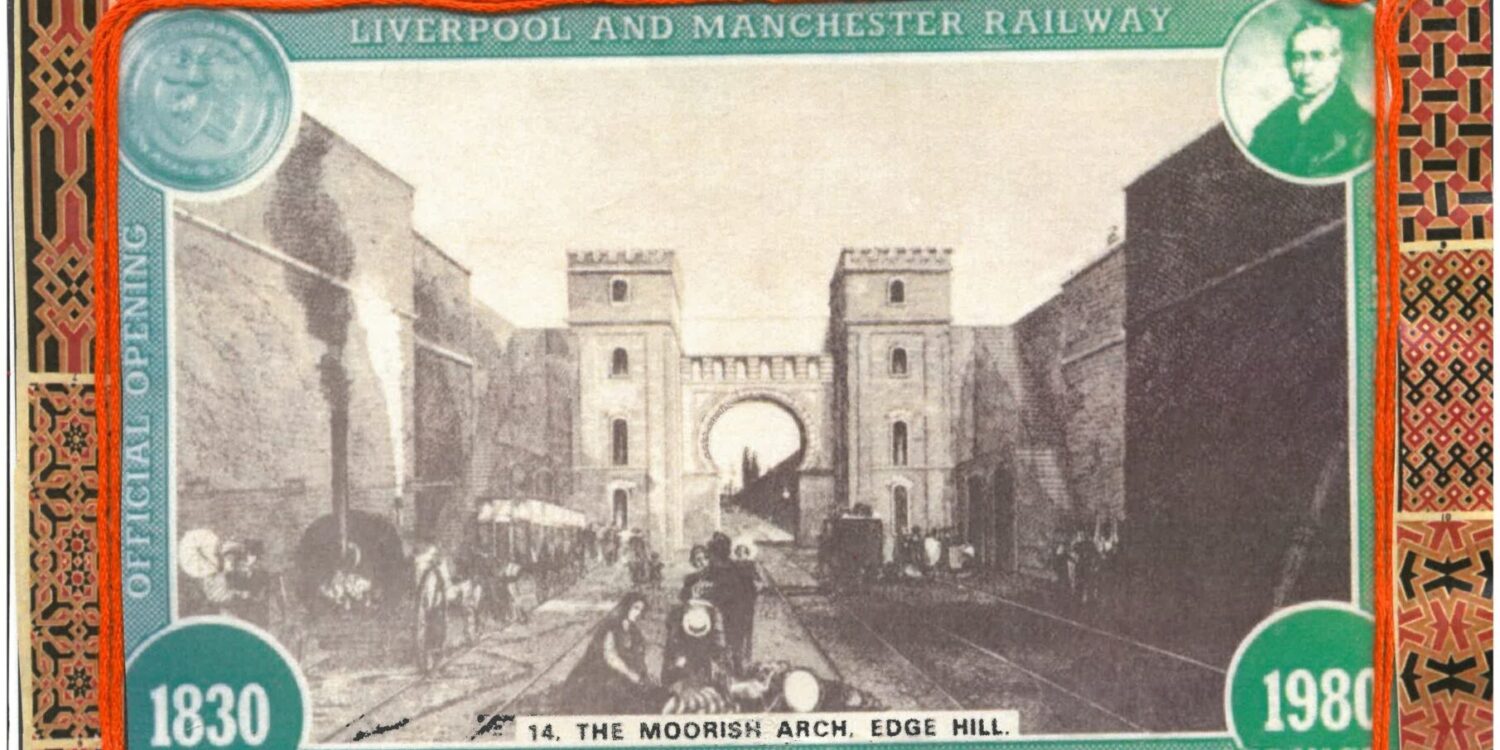“What are the untold stories of Arabs in Victorian Britain?” This is what I set out to find out when I was invited by the Arab British Centre to undertake this research project as part of Kheit خيط, a programme exploring the threads connecting Britain and the Arab world in the 19th and early 20th Centuries.

As an artist and facilitator, my practice revolves around the politics of archives and the construction of memory. As part of my process, I try to decipher the narratives that shape our collective imagination, whilst also identifying the erasures, gaps and fragments left behind by history. The story of how Arab and SWANA communities shaped Victorian Britain is a history which remains largely unexplored, and so, I set out on a journey to piece together this forgotten past.
The first stop on this journey was the Portico Library, an institution founded in 1806 by a group of notable figures from Manchester. Originally established to foster the intellectual and cultural development of the city amidst rapid industrialisation and social transformations, the library holds an extensive collection of 19th century books including travel diaries, illustrated books, manuscripts and treatises. As I step into the space, I am warmly greeted by Apapat, who skilfully guides me through the library’s collection.

I begin uncovering a world of stories; the cotton trade and the Industrial Revolution, the Yemeni seafarers who first settled in British port cities, the Syrian and Moroccan merchants who opened trade houses in Manchester… I learn about forgotten artefacts and places: the lost mosque of Kew Gardens, the portrait of a Moroccan Ambassador in Chiswick House… Some of the books are so fragile they have to be held open with glass beads. The beads remind me of my grandmother’s Tasbih. It feels like a ritual in some ways, reconnecting with the memory of my ancestors. I continue carefully sifting through newspaper clippings, obituaries and directories, perhaps in the hope of finding the name of a distant relative who set foot on these isles centuries before me.

On July 12, 2023, I bring my findings to the Leighton House museum to share my research with a group as part of a workshop. The intention behind this event was to shape new narratives by fostering active engagement with the sources I had gathered, inviting the participants to collectively reflect, critique and transform these materials. Using creative processes such as collaging, stitching, painting and drawing, the participants start unraveling new threads, revealing unexpected connections in the materials I collected. Personal memories intertwine with historical narratives, as one lady delicately weaves the story of her grandmother’s upbringing in Turkey, inspired by a tile ornament she found earlier that day in the museum. Another participant turns the imperial narrative of discovery and exploration on its head, shedding light on how Arab and SWANA communities contributed and influenced many first-time stories in Britain: the first railway in Liverpool, the first Turkish bathhouse in London, the first mosque in Woking…
As the workshop draws to a close and we part ways, a curious feeling of thirst lingers in the room. In a way we know that this was only just the beginning of the story, that we had merely scratched the surface of the countless stories yet to be unearthed. As we continue to read history between the lines, we can pave the way for a deeper understanding of the role played by our communities in shaping the landscape of British history. Re-assembling, piece by piece, the missing fragments of our shared heritage, we can ensure that these stories are remembered for generations to come.
***
Chahine Fellahi (b. 1994) is an artist-filmmaker and facilitator based between London (UK) and Casablanca (Morocco). Working across analog and digital processes, her practice revolves around the politics of archives, exploring relations and borders between the materiality of media and the making of memory.
Chahine is the co-founder of Kimiã, a collective dedicated to experimental practices in film, photography and media arts in Morocco. She graduated with a Masters in Philosophy and Film studies at King’s College London in 2018. Her work has been shown locally and internationally, including at the San Francisco Arab Film Festival (2019), Kaleidoskop Festival in Vienna (2020), the Slaoui Museum in Casablanca (2021) and Le 18 in Marrakech (2021).
She led the event Kheit خيط – Rewriting History: An Afternoon of Play and Experimentation Exploring the History of Arabs in Britain at the Arab British Centre on 12 July 2023.

